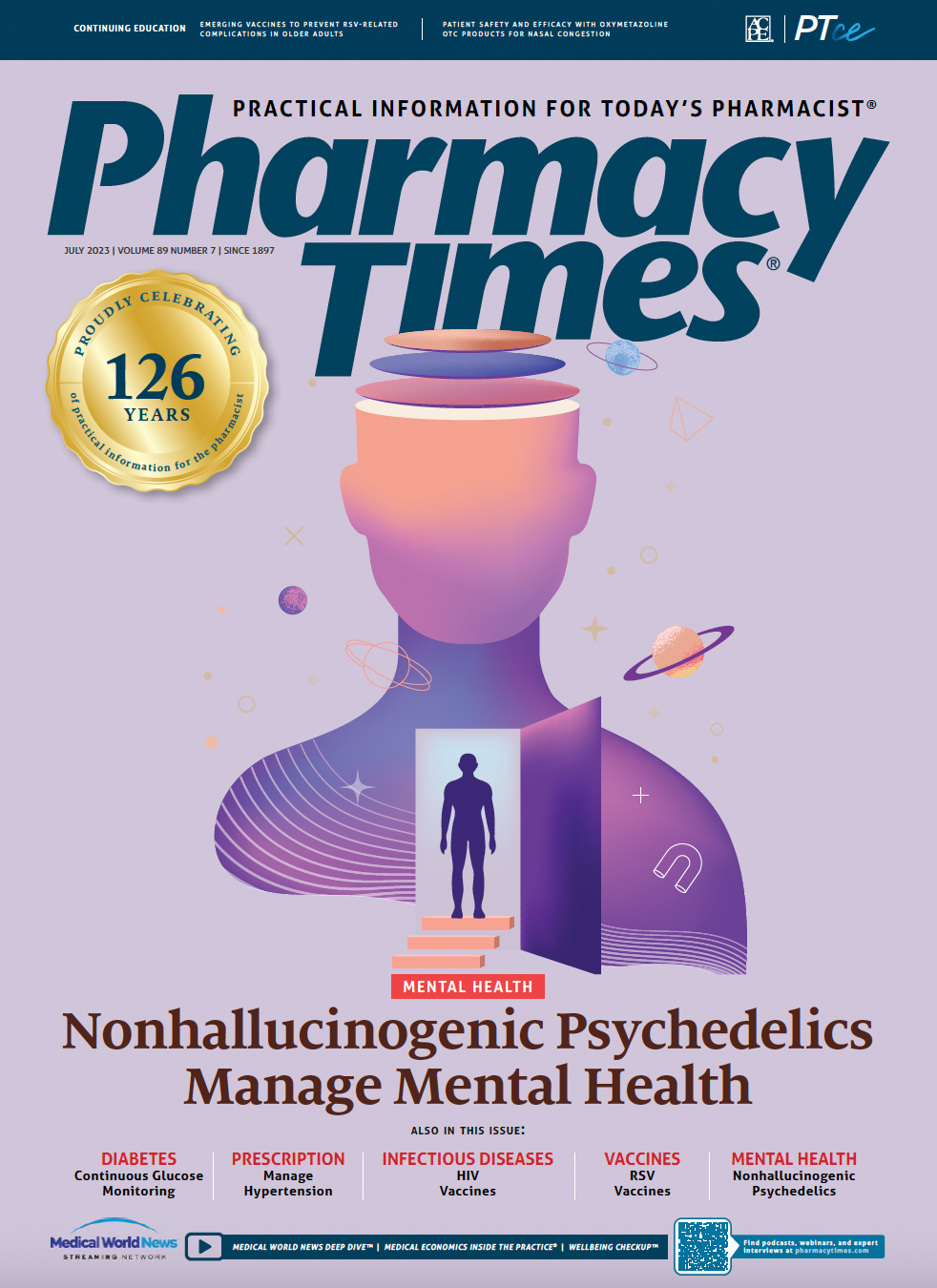Publication
Article
Pharmacy Times
Constipation: When Should Patients Self-Treat or Seek Medical Care?
Author(s):
Chronic or recurring episodes can lead to other complications.
Constipation is defined as fewer than 3 bowel movements per week accompanied by straining and difficulty passing hard and dry stools.1,2 Constipation is among the most frequent gastrointestinal complaints in the United States and Western countries.1
Image Credit: Eddows - stock.adobe.com

The American College of Gastroenterology (ACOG) notes that an estimated 2.5 million physician visits annually are related to the evaluation and management of constipation and are correlated with significant direct and indirect costs, with one study reporting costs of more than $230 million annually.1-3
Although almost everyone occasionally experiences constipation, an estimated 8% to 12% of the US population has chronic constipation. Often perceived as merely a nuisance, constipation can, if left untreated, reduce productivity and energy levels; contribute to physical and psychological distress and affect overall health-related quality of life; and increase the risk of anxiety, depression, and cognitive impairment.1,3 Constipation can affect anyone at any age, but the incidence is higher among older individuals, during the late stages of pregnancy, after childbirth, after surgery, and when taking certain medications.2 Studies have demonstrated that individuals 65 years and older are 5 times more likely than younger individuals to experience constipation, and women are 3 times more likely than men to experience constipation.2
The etiology of constipation is often multifaceted, and can be affected by diet (eg, diets low in carbohydrates, calories, or fiber), low intake of water, sedentary lifestyle, genetic predisposition, colonic motility, certain medical conditions, and medications.2,6 Medical issues that may increase the incidence of constipation include colorectal cancer, endocrine conditions (hypothyroidism, diabetes, hyperparathyroidism), neurological conditions (neuropathy, Parkinson disease, multiple sclerosis, muscular dystrophy), eating disorders, and metabolic causes (hypercalcemia, hypokalemia).2
Pharmacists are well positioned to identify pharmacological agents that may augment the risk of and/or exacerbate constipation. Medications commonly associated with constipation include antihypertensive agents (angiotensin-converting enzyme inhibitors, β-blockers, calcium channel blockers); antidepressants, especially tricyclics; monoamine oxidase inhibitors; iron supplements; anticholinergics; opioids; antacids (eg, aluminum and calcium compounds); anticonvulsants; nonsteroidal anti-inflammatory drugs; sympathomimetic agents; many psychotropic drugs; antihistamines; and some chemotherapies.2
Research results indicate that an estimated 40% of individuals using opioids have constipation.2 The American Society for Nutrition indicates that only 5% of men and 9% of women are obtaining the recommended daily amount of dietary fiber, which not only contributes to increased risk of constipation but may also expand the risk of cardiovascular disease and diabetes.7
PREVENTION AND TREATMENT
Although the majority of constipation cases can be effectively managed with nonprescription laxatives and fiber supplements, chronic constipation—which can lead to other complications such as hemorrhoids, anal fissures, and fecal impaction—may need additional treatment.2,8
Before recommending nonprescription products for managing and preventing constipation, pharmacists should ascertain whether self-treatment is appropriate and encourage patients with chronic or repeated episodes of constipation to seek further medical care from their primary HCP when warranted.2,8
The selected treatment for constipation should be based on the patient’s medical and medication history; allergies; and the cause, severity, and duration of their constipation. ACOG notes that nonpharmacological therapies often represent the initial steps in management and may include dietary recommendations, including increased fluid intake and dietary fiber, and behavioral changes, such as exercise, when appropriate.2,9
Nonprescription options include bulk-forming agents (methylcellulose, polycarbophil, psyllium), hyperosmotic agents (polyethylene glycol 3350, glycerin), saline laxatives (magnesium citrate, magnesium hydroxide), emollients (docusate sodium, calcium), lubricant agents (mineral oil), and stimulant (bisacodyl, senna) or combination laxatives.
RECENT NEWS AND CLINICAL DATA
In June 2023, ACOG and the American Gastroenterological Association published new clinical practice guidelines for the management of chronic idiopathic constipation (CIC) in adults.9 The updated guidelines include 10 evidence-based recommendations for managing CIC. There are 2 new options for CIC in adults: magnesium oxide and senna.9
In a recent study published in The American Journal of Clinical Nutrition, investigators conducted a systematic review and meta-analysis of randomized controlled trials to evaluate the effect of fiber supplementation on gut transit time, stool output, symptoms, and quality of life among adults with chronic constipation.10 They noted that fiber supplementation is effective in improving constipation. The authors wrote, “Particularly, psyllium, doses [of greater than] 10 g/d and treatment durations of at least 4 weeks, appear optimal, though caution is needed when interpreting the results due to considerable heterogeneity. These findings provide promising evidence on the optimal type and regime of fiber supplementation, which could be used to standardize recommendations to patients.”10
CONCLUSION
During counseling, pharmacists should ascertain whether self-treatment is appropriate and screen for potential drug interactions and contraindications. Patients should be advised to avoid taking most laxatives within 2 hours of other medications to prevent potential interactions.2 Patients should be reminded to adhere to the manufacturer’s recommendations, including dosage, administration, duration of selected therapy, potential adverse drug reactions, and treatment expectations. Generally, the recommended duration of use is 7 days unless otherwise directed by an HCP.2 Patients taking fiber supplements to maintain regularity and to reduce the incidence of constipation should be advised to gradually increase intake over 1 to 2 weeks to improve tolerance and decrease adverse drug reactions.
References
- Constipation and defecation problems. American College of Gastroenterology. Updated August 2022. Accessed June 5, 2023. https://gi.org/topics/constipation-and-defection-problems/
- Wiisanen K, Gatewood S. Constipation. In: Krinsky D, Ferreri S, Hemstreet BA, et al, eds. Handbook of Nonprescription Drugs, 20th ed. American Pharmaceutical Association. 2020.
- Sperber AD, Bangdiwala SI, Drossman DA, et al. Worldwide prevalence and burden of functional gastrointestinal disorders, results of Rome Foundation Global Study. Gastroenterology. 2021;160(1):99–114. doi:10.1053/j.gastro.2020.04.014
- Liu Q, Kang Y, Yan J. Association between overall dietary quality and constipation in American adults: a cross-sectional study. BMC Public Health. 2022;22(1):1971. doi:10.1186/s12889-022-14360-w
- Definition & facts for constipation in children. National Institute of Diabetes and Digestive and Kidney Diseases. Updated May 2018. Accessed June 5, 2023. https://www.niddk.nih.gov/health-information/digestive-diseases/constipation-children/definition-facts
- Forootan M, Bagheri N, Darvishi M. Chronic constipation: a review of literature. Medicine (Baltimore). 2018;97(20):e10631. doi:10.1097/MD.0000000000010631
- Most Americans are not getting enough fiber in their diets. American Society for Nutrition. June 9, 2021. Accessed June 8, 2023. https://nutrition.org/most-americans-are-not-getting-enough-fiber-in-our-diets/
- Dlugosz CK. Constipation. In: Dlugosz CK, ed. The Practitioner’s Quick Reference to Nonprescription Drugs. American Pharmacists Association. 2012.
- Chang L, Chey WD, Imdad A, et al. American Gastroenterological Association-American College of Gastroenterology clinical practice guideline: pharmacological management of chronic idiopathic constipation. Am J Gastroenterol. 2023;118(6):936-954. doi:10.14309/ajg.0000000000002227
- van der Schoot A, Drysdale C, Whelan K, Dimidi E. The effect of fiber supplementation on chronic constipation in adults: an updated systematic review and meta-analysis of randomized controlled trials. Am J Clin Nutr. 2022;116(4):953-969. doi:10.1093/ajcn/nqac184

Newsletter
Stay informed on drug updates, treatment guidelines, and pharmacy practice trends—subscribe to Pharmacy Times for weekly clinical insights.





